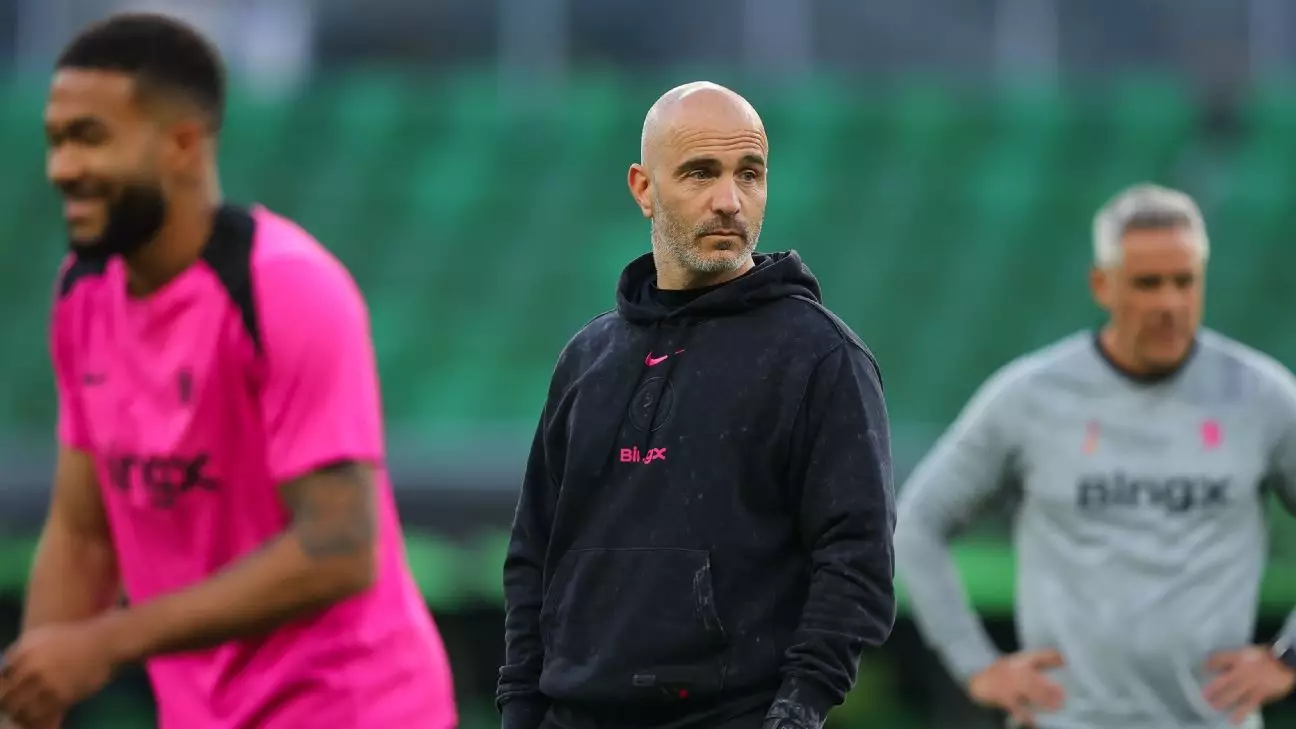In the high-stakes world of football, where club performance is entwined with financial incentives, Chelsea’s recent remarks from Enzo Maresca reveal an intriguing narrative. While many clubs stress the importance of financial returns, particularly in tournaments like the Club World Cup, Chelsea appears to adopt a refreshing perspective. With a staggering £97 million ($130 million) up for grabs for the tournament winner, one might assume that financial pressure would weigh heavily on the players and management. However, Maresca suggests otherwise, urging that the focus is primarily on performance rather than profit.
Chelsea’s position within the Premier League’s Profit and Sustainability Rules showcases a commitment to compliance, yet their recent financial maneuvers raise eyebrows. Selling the Copthorne and Millennium hotels for £76.5 million to a sister company might seem like savvy business, yet this controversial justification has not escaped scrutiny. The overarching question lingers: are these transactions a tactical play or an attempt to navigate financial fair play regulations in a way that could invite further investigation?
Culture Over Currency: A Shift in Focus
Maresca’s statements regarding the club’s ethos illuminate a culture that prioritizes passion over profit. His assertion that the ownership’s rationale is not shaped by financial gain, but rather by the game’s integrity, indicates a significant cultural shift within the club. This foundational philosophy resonates well, demonstrating that Chelsea’s ambitions transcend mere monetary rewards. There exists a genuine desire among the stakeholders to revitalize the club’s legacy and to foster a connection with their supporters that extends beyond the pitch.
This mindset could be instrumental as Chelsea navigates a challenging phase in their campaign. The urgency to qualify for the knockout stages against Esperance de Tunis adds layers of complexity. Yet, with £40 million guaranteed just for entering the tournament, the players must find balance amidst the high expectations. The hope is that the focus on creating a positive impact rather than merely chasing the financial windfall offers a renewed sense of purpose.
Player Welfare: Challenges and Resilience
Adding to the club’s challenges, Reece James’ absence from training due to illness in the sweltering Philadelphia heat exemplifies the unsettling unpredictability athletes often face. While Chelsea players are pushed to excel under pressure, their health is paramount. The soaring temperatures and demanding schedules should serve as a reminder to prioritize player welfare, ensuring that physical and mental well-being is never sacrificed for success.
As they inch closer to ethical inquiry by UEFA regarding financial alignments, Chelsea must pivot and approach future markets with transparency and integrity. Not only should they strive for knockout stage success, but they should also aim to fortify their brand as a club that fosters resilience, ambition, and community spirit. Such qualities could very well redefine their narrative in a sport often overshadowed by scandals and financial misconduct.
Chelsea’s journey is about more than just trophies or financial success; it’s about stability, integrity, and forging a meaningful relationship with their fans that honors the spirit of the game. This balance will ultimately be the key to their long-term success and legacy in football.

